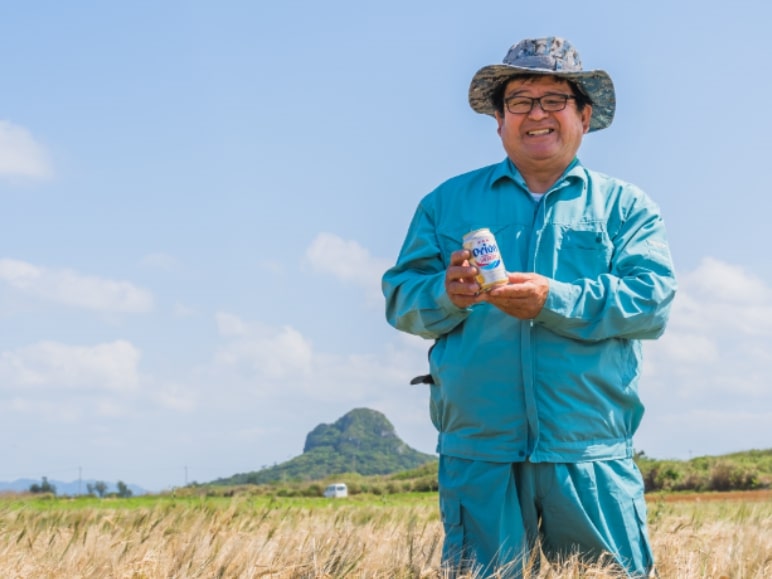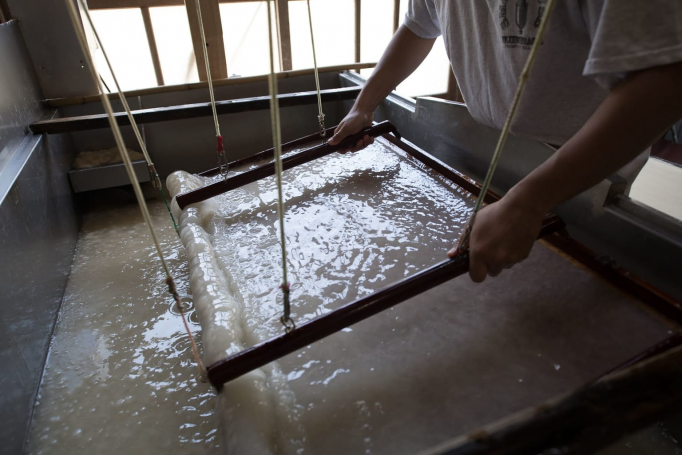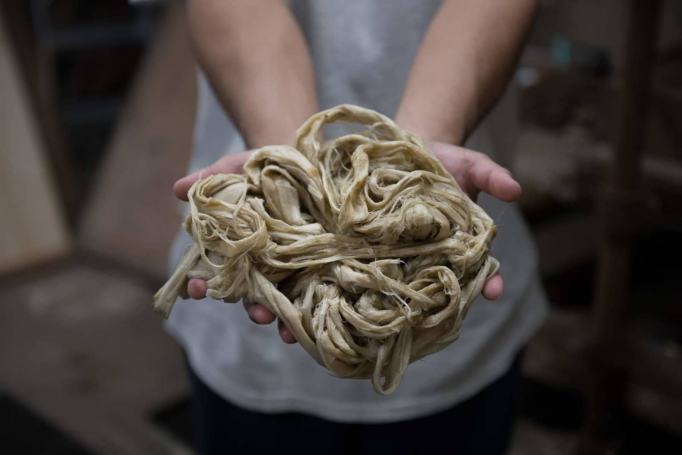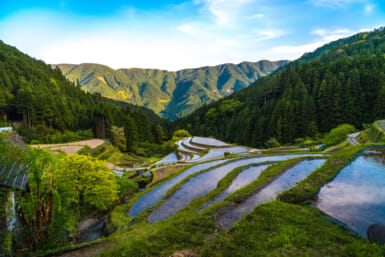Sustainability is not just a buzzword anymore. An increasing number of companies are taking the initiative to improve their business operations for a positive footprint and a good relationship with stakeholders. Having been left behind in regard to environmental, social and governance (ESG) trends, Japan is now reconsidering how it sees its corporate social responsibility (CSR) efforts. Here, we take a look at some recent examples of companies contributing to sustainability in Japan.
Tully’s Coffee and Nano Universe: Coffee-dyed, Organic Cotton T-shirts

Japanese apparel brand Nano Universe and Tully’s Coffee are celebrating their first collaboration by coming out with a line of T-shirts dyed with Tully’s coffee grounds. Each unisex T-shirt is made of 100 percent organic cotton. Tully’s coffee cup logo and coffee-related taglines accentuate the genderless and minimal design. It’s perfect for coffee lovers. T-shirts are available in six different designs at the online store of both Nano Universe and Tully’s Coffee.
This joint launch was set up as part of the Food Textile project led by Japanese textile company Toyoshima. They aim to reduce and reuse food waste by extracting dyes from the ingredients that food companies normally dispose of. Ultimately, the goal is to increase awareness for the sustainable use of products that would normally go to waste. Additionally, they hope to create a long-term business partnership that goes beyond the norm of traditional CSR efforts.
Orion Beer: Local Barley from Okinawa
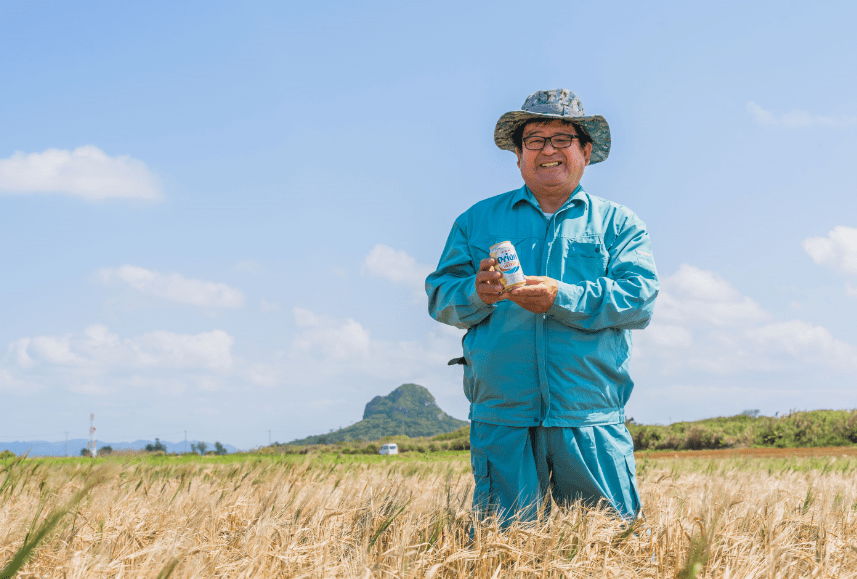
Okinawa’s most famous brewing company Orion Beer uses local barley from Iejima in Okinawa for its beer production. Local production helps Orion Beer fulfill the social responsibility aspect of their production process and promote regional business efforts in the region.
They grow the barley in rich soil full of brewers’ grains. The first brewed beer scheduled to come out this month uses this newly harvested, sustainable kind of barley. The barley farming that started in Iejima has now spread across to other areas in Okinawa as well. Local academic institutions are actively participating in the farming process, hoping that it potentially blooms into a major industry in the area.
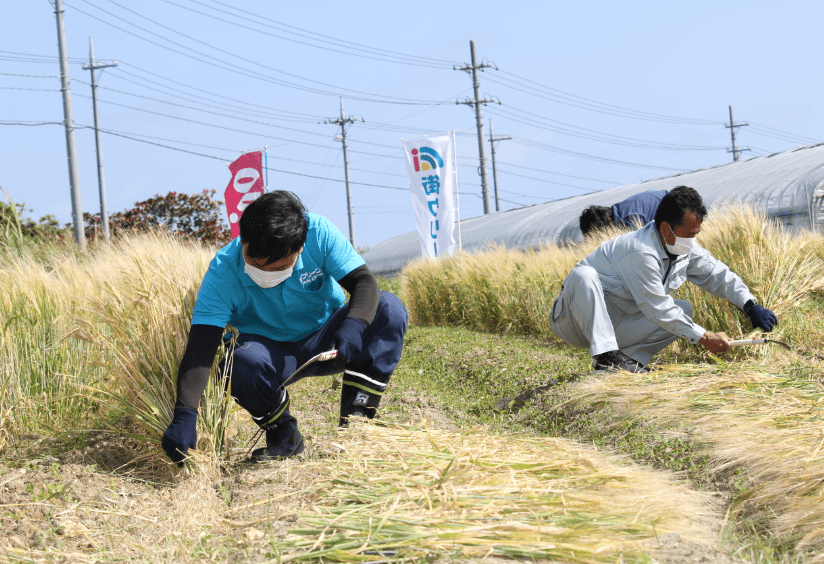
The company’s CEO feels that Okinawa could become a significant location for sustainable and fully circular barley farming. He notes that this opportunity has helped the company show what the southernmost prefecture can offer the country.
Bulgari: Sweet and Sustainable Choco Gems
The famous Italian luxury jewelry brand Bulgari is coming out with a new line of its signature chocolate gems. Made from ethically sourced, fair-trade cacao, they’re carefully wrapped in a washi-paper box crafted in a 300-year-old washi workshop in Saga Prefecture. The Bulgari brand has gone above and beyond to pay its respect to the traditional Japanese craft-making sector.
 By teaming up with Food Loss Bank for the project, the brand seeks to mitigate the environmental and societal impact surrounding food waste. Moreover, they are promoting an ethical production of their signature products. With this, Bulgari attempts to answer what sustainability is and how the brand can better incorporate it in its business activities.
By teaming up with Food Loss Bank for the project, the brand seeks to mitigate the environmental and societal impact surrounding food waste. Moreover, they are promoting an ethical production of their signature products. With this, Bulgari attempts to answer what sustainability is and how the brand can better incorporate it in its business activities.
The “Chocolate Gems for Sustainability” quantities are limited. You can purchase one online or in one of Bulgari’s stores.
Traditional paper-making
Sustainability in Japan is still not ubiquitous, but some brands are getting a head start and as a result are becoming pioneers in the field. Each industry is responsible for stepping up and adding value in the form of environmental and ethical benefits. Finally, progress toward a sustainable society is steadily becoming a mainstream goal.
Read more about sustainability in Japan:

